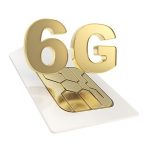O2 UK Superfast 4G Mobile Broadband London Trial Hits 150Mbps
Mobile operator O2 UK (Telefonica) has today issued an update for its 2.6GHz trial of “4G” superfast Mobile Broadband Long Term Evolution (LTE) technology in London, which started last November 2011 (here). Apparently its 1,000 trialists have experienced internet download speeds of between 20-50Mbps (Megabits / sec) and some tests even reached close to the 150Mbps peak.
Furthermore some users on the 9 month long trial, which is being conducted via 25 masts that cover roughly 15 square miles of the city (e.g. Canary Wharf, Soho, Westminster, South Bank and Kings Cross), have even managed to transfer 200 GigaBytes’ (GB) of data, and connection latency is also said to be pleasingly low (fast). This is in keeping with Timico’s recent trial report (here).
It is no coincidence that today is 18th April 2012, which for many people around the UK marks the final date in the long running Digital TV Switchover calendar, as older analogue television spectrum/services are switched off (800MHz) in favour of a purely Digital Terrestrial TV (DTTV). Ofcom intends to auction that 800MHz band off for use by “4G” services in Q4-2012, assuming it isn’t delayed further by mobile operators and their constant bickering.
CEO of O2 UK (Telefonica), Ronan Dunne, said:
“The forthcoming spectrum auction is a watershed moment for the UK mobile industry, releasing the airwaves that will power a whole range of exciting next-generation mobile services.
The new spectrum will increase capacity, quality and speed – we estimate that mobile broadband capacity will increase by 20 to 40 times from today’s levels – and will allow us to deliver true connectivity through a suite of innovative digital services, that work seamlessly and at speed for the benefit of consumers, business and UK plc.”
This all sounds good but it’s worth remembering something. O2 estimated last year that their future commercial deployment of 4G services would see even more demand for bandwidth and thus chop average speeds to between 10-15Mbps. Customers will also need new USB Modems (Dongles) or supporting Smartphone’s to take advantage of 4G. The service itself is also likely to carry an extra cost, although that has yet to be confirmed.
Advertisement
O2 spent around £500m upgrading its network last year to support the new services and a similar amount will probably be spent in 2012. In the meantime their fixed line Home Broadband services appear to be neglected. O2’s sibling ISP, Be Broadband, recently delayed the launch of superfast broadband until 2013.
Mark is a professional technology writer, IT consultant and computer engineer from Dorset (England), he also founded ISPreview in 1999 and enjoys analysing the latest telecoms and broadband developments. Find me on X (Twitter), Mastodon, Facebook, BlueSky, Threads.net and Linkedin.
















































Comments are closed